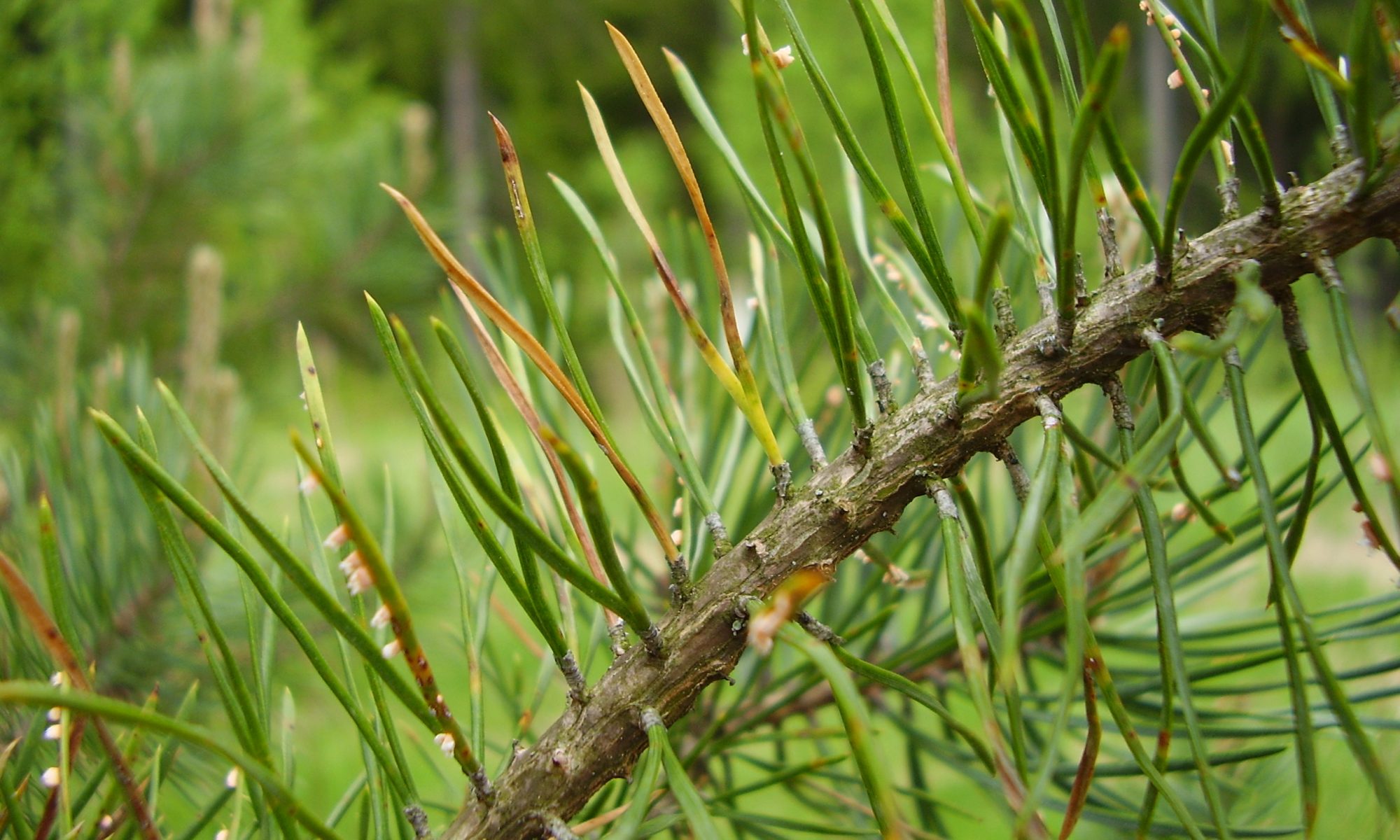Course Title: Tropical Forest Mycology & Pathology (3 credit points).
Period III: Winter
ME 462: Tropical Forest Mycology & Pathology (3 credit points); 28 – 30th March, 2011
Aim: The course will cover diseases of forest trees in subtropical and tropical regions. Insights on the diversity of wood decomposing fungi in tropical forests will also be covered. There will also be lectures on Biodiversity and sustainable management of tropical forest, fungi and bacterial diseases of tropical forest trees, entomological damages of tropical forest trees, tropical species diversity, and applied tropical ethnobotany. Additionally, several aspects of legislation and quarantine regulations in tropical forest protection will be highlighted.
Contents: The course will consists of lectures and written assignments. The grading will be based on written assignments and active participation during the course.
Additional Information: The course will be in English. Number of students expected is 25 – 35
Invited Teachers: Prof. Mike Wingfield, Prof. Meike Piepenbring, Dr. Clovis Douanla-Meli
Registration: You can register in in Weboodi: https://oodi-www.it.helsinki.fi/hy/opettaptied.jsp?html=1&Tunniste=81432&AlkPvm=28032011&Kieli=6
Alternatively if you can not access weboodi, please express your interest by sending e-mail to Susanna Keriö (susanna.kerio@helsinki.fi)
Literatures to be read:
1. Bernard Slippers, Michael J Wingfield. Botryosphaeriaceae as endophytes and latent pathogens of woody plants: diversity, ecology and impact. fungal b i o l o gy r e v i e ws 2 1 ( 2 0 0 7 ) 9 0 – 1 0 6
2. David M. Richardson, PhilipW. Rundel, Stephen T. Jackson, Robert O. Teskey,
James Aronson, Andrzej Bytnerowicz, Michael J.Wingfield, and S¸ erban Proches.
Human Impacts in Pine Forests: Past, Present, and Future. Annu. Rev. Ecol. Evol. Syst. 2007. 38:275–97
3. MJ Wingfield, B Slippers, BP Hurley, TA Coutinho, BD Wingfield and J Roux. Eucalypt pests and diseases: growing threats to plantation productivity. Southern Forests 2008, 70(2): 139–144
4. Michael Wingfield Increasing threat of diseases to exotic plantation forests in the Southern hemisphere: lessons from cryphonecteria canker Austalian Plant Pathology 2003, 32, 133 – 2139
5. Tina A. Hofmann & Roland Kirschner & Meike Piepenbring. Phylogenetic relationships and new records of Asterinaceae (Dothideomycetes) from Panama. Fungal Diversity (2010) 43:39–5
6. Me i k e Piepenbring & Armando Ruiz-Boyer. Diversity and ecology of fungi in the Golfo Dulce region. Stapfia 88, zugleich Kataloge der oberosterreichischen Landesmuseen Neue Serie 80 (2008): 179-192.
7. Solomon P. Wasser. Current findings, future trends, and unsolved problems
in studies of medicinal mushrooms. Appl Microbiol Biotechnol online 29 December 2010
8. “State of the World´s Forests 2011” published by FAO:
http://www.fao.org/docrep/013/i2000e/i2000e00.htm
9. Yuan Fei1, LUO You-qing, Shi Juan, Kari Heliövaara, Qi Guo-xin, Li Xiang-jun, Han Yong-shi, Chen Chao. Invasive sequence and ecological niche of main insect borers of Larix gmelinii forest in Aershan, Inner Mongolia For. Stud. China, 2008, 10(1): 9–13
10. Fikret Berkes, Johan Colding AND Carl Folk. Rediscovery of traditional ecological knowledge as adaptive management. Ecological Applicatiotns, 10(5), 2000, pp. 1251-1262
11. David Lonsdale, Marco Pautasso, Ottmar Holdenrieder. Wood-decaying fungi in the forest: conservation needs and management options. Eur J Forest Res (2008) 127:1–22
12. Jane Fröhlich and Kevin Hyde. Biodiversity of palm fungi in the tropics:
are global fungal diversity estimates realistic? Biodiversity and Conservation 8: 977–1004, 1999.
The schedule for the three day course is as follows:
Day 1: Monday 28th March 2011 (Room LS B5)
0845 Coffee break
0900 Introduction by Fred Asiegbu
0910 Fred Asiegbu, University of Helsinki, Finland
Basic principles of Forest Tree Pathology
1000 Olavi Luukkanen, University of Helsinki, Finland
Trees of the World: an overview
1100 Break
1105 Meike Piepenbring, Goethe University, Germany
Tropical fungal diversity (South American perspective)
1200 Lunch
1315 Faculty Seminar by Mike Wingfield (open to everyone) (Room LS B4)
Global tree health: What next?
1415 Clovis Douanla-Meli, University of Kassel, Germany
Tropical fungal diversity (West African perspective)
1505 Coffee break
1515 Mike Wingfield, University of Pretoria, South Africa
Tree diseases in the tropics
1900 Dinner in a Restaurant (Helsinki city centre)
Day 2: Tuesday 29th March 2011(Room LS B5)
0845 Coffee
0900 Meike Piepenbring, Goethe University, Germany
Plant parasitic micro-fungi in tropical forests
1000 Kari Heliövaara, University of Helsinki, Finland
Biodiversity and Forest insect problems in China
1100 Coffee break
1110 Mike Wingfield, University of Pretoria, South Africa
Insect pests on tropical forest trees
1200 Lunch
1310 – 1440: Meike Piepenbring, Goethe University, Germany (Room K176)
Laboratory demonstration and Microscopic observation of plant parasitic fungi (Group 1)
1440 – 1610: Meike Piepenbring, Goethe University, Germany (Room K176)
Laboratory demonstration and Microscopic observation of plant parasitic fungi (Group 2)
1930 Dinner in a Restaurant (Helsinki city centre)
Day 3: Wednesday 30th March 2011 (Room LS B4)
0845 Coffee
0900 Clovis Douanla-Meli, , University of Kassel, Germany
Conservation of wood inhabiting fungi in rain forest region of Cameroon
1000 Mike Wingfield, University of Pretoria, South Africa
Sustainable management of pest and disease problems in the tropics
and implications for biodiversity
1100 Coffee break
1110 Lu-Min Vaario, Finnish Forest Research Institute, METLA, Finland
Tropical mushrooms from Asia: edible and medicinal value
1200 Lunch
1315 Kurt Walter, University of Helsinki, Finland
Applied Tropical Ethnobotany
1400 Legislation and quarantine regulations in tropical forest protection
The end
